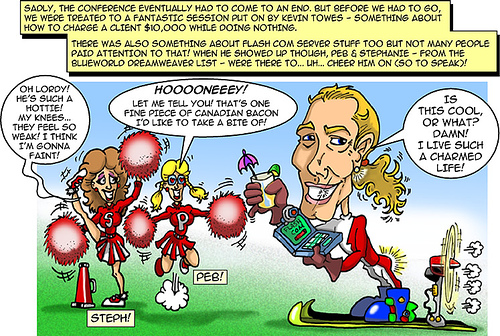3.1 Finally, Paco visits the adverb shop
In order to understand better how important adverbs are, have a look at the following presentation. It points out the difference between adverbs and adjectives, and it also reminds you how to add -ly to adjectives to form adverbs. Have a look here.

|
| By Brajeshwar Oinam. C. Commons |
Some adverbs are false friends. Let's take actually and eventually. We tend to think they mean actualmente and eventualmente. However, they exactly mean en realidad and finalmente, respectively. Moreover, in English, the adverb dramatically also means exaggeratedly (radicalmente, de manera espectacular), while the Spanish word dramáticamente does not have this meaning.
- Click here to review and read other notes on adverbs.
- If you want to practice where adverbs are placed in sentences, click here.
- Here you are another useful exercise to improve your knowledge on adverbs and adjectives.
- Finally, if you want to learn more adverbs, here you can find a good list.
Read the sentences and complete the blanks with the correct adverb from the adjectives.
1. Paco learns English very (slow).
2. You can open that box of tennis balls (easy).
3. Andrés's sister drives his car (careful).
4. They don't know how to do it (proper).
5. , Paco appeared with a new dress (sudden / complete).

|
| By Envina Magno. C. Commons |
Read the first passage of the topic where we are provided information about Paco. Write a similar passage about yourself and then read it aloud. Pay attention to word order, tenses and don't forget to use adverbs to modify verbs, adjectives, other adverbs, clauses or whole sentences (try to join some of the sentences by means of connecting adverbs).
This is the end of topic 2 in which we have mainly been working on the Present Simple Tense, Adverbs of frequency, other adverbial phrases to express how often actions occur, and the formation of adverbs. In topic 3 we'll see the form and use of another important tense in English: the present continuous. Let's study it!